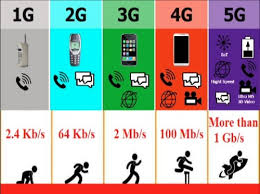Het arrangement Theme 4 - Contacts is gemaakt met Wikiwijs van Kennisnet. Wikiwijs is hét onderwijsplatform waar je leermiddelen zoekt, maakt en deelt.
- Auteur
- Laatst gewijzigd
- 2024-04-11 20:14:59
- Licentie
-
Dit lesmateriaal is gepubliceerd onder de Creative Commons Naamsvermelding-GelijkDelen 4.0 Internationale licentie. Dit houdt in dat je onder de voorwaarde van naamsvermelding en publicatie onder dezelfde licentie vrij bent om:
- het werk te delen - te kopiëren, te verspreiden en door te geven via elk medium of bestandsformaat
- het werk te bewerken - te remixen, te veranderen en afgeleide werken te maken
- voor alle doeleinden, inclusief commerciële doeleinden.
Meer informatie over de CC Naamsvermelding-GelijkDelen 4.0 Internationale licentie.
Aanvullende informatie over dit lesmateriaal
Van dit lesmateriaal is de volgende aanvullende informatie beschikbaar:
- Leerniveau
- VWO 2; HAVO 1; VWO 1; HAVO 2;
- Leerinhoud en doelen
- Engels;
- Eindgebruiker
- leerling/student
- Moeilijkheidsgraad
- gemiddeld
- Studiebelasting
- 4 uur 0 minuten
- Trefwoorden
- arrangeerbaar, leerlijn, rearrangeerbare
Gebruikte Wikiwijs Arrangementen
VO-content Engels. (2023).
Thema Contacts - hv12


 You have just started the theme Contacts.
You have just started the theme Contacts. Before starting to work in this theme, check with a classmate how much you know about 'contacts' already.
Before starting to work in this theme, check with a classmate how much you know about 'contacts' already. In this theme you will focus on the following 'can do' statements.
In this theme you will focus on the following 'can do' statements. At the end of this theme you:
At the end of this theme you: In this theme there are four lessons.
In this theme there are four lessons.
 Je hebt de blokken van het thema 'Contacts' doorgewerkt.
Je hebt de blokken van het thema 'Contacts' doorgewerkt. Do you know what 2G, 3G, 4G and 5G stand for in mobile phones?
Do you know what 2G, 3G, 4G and 5G stand for in mobile phones?


 You started this theme you with a test in the section Need to know.
You started this theme you with a test in the section Need to know.
